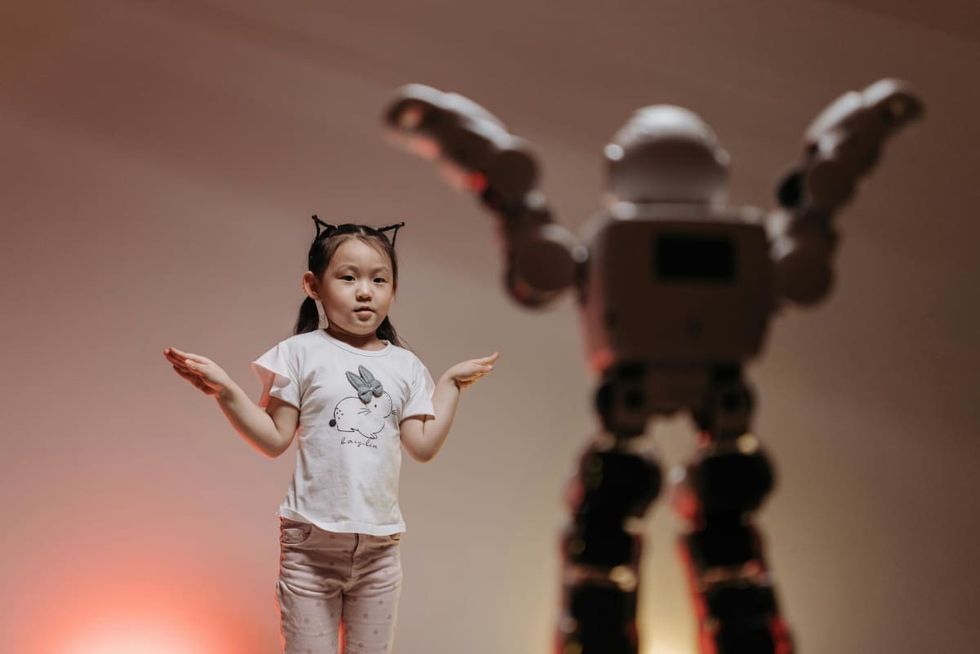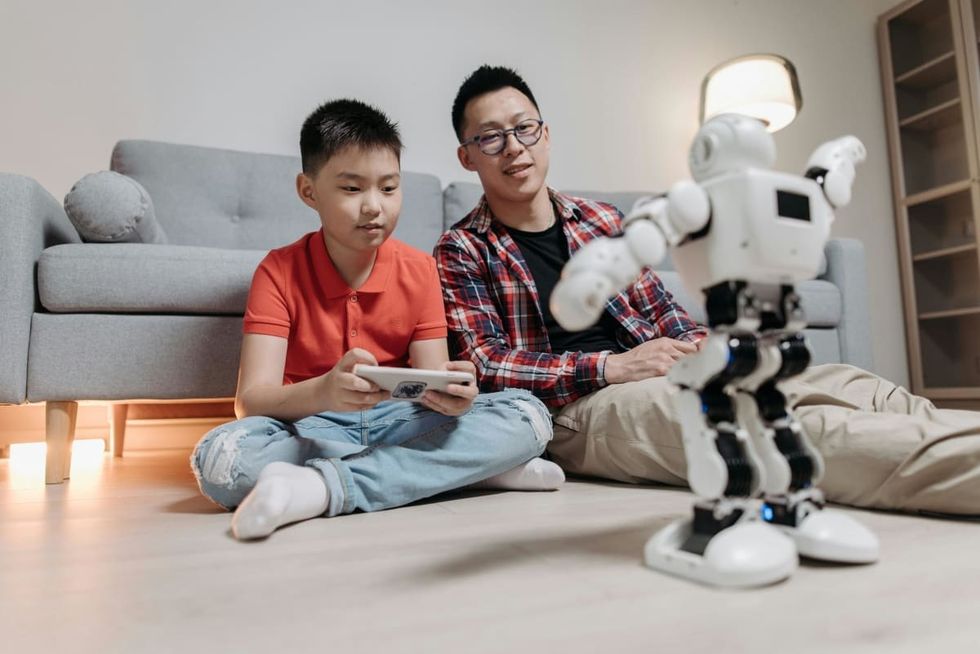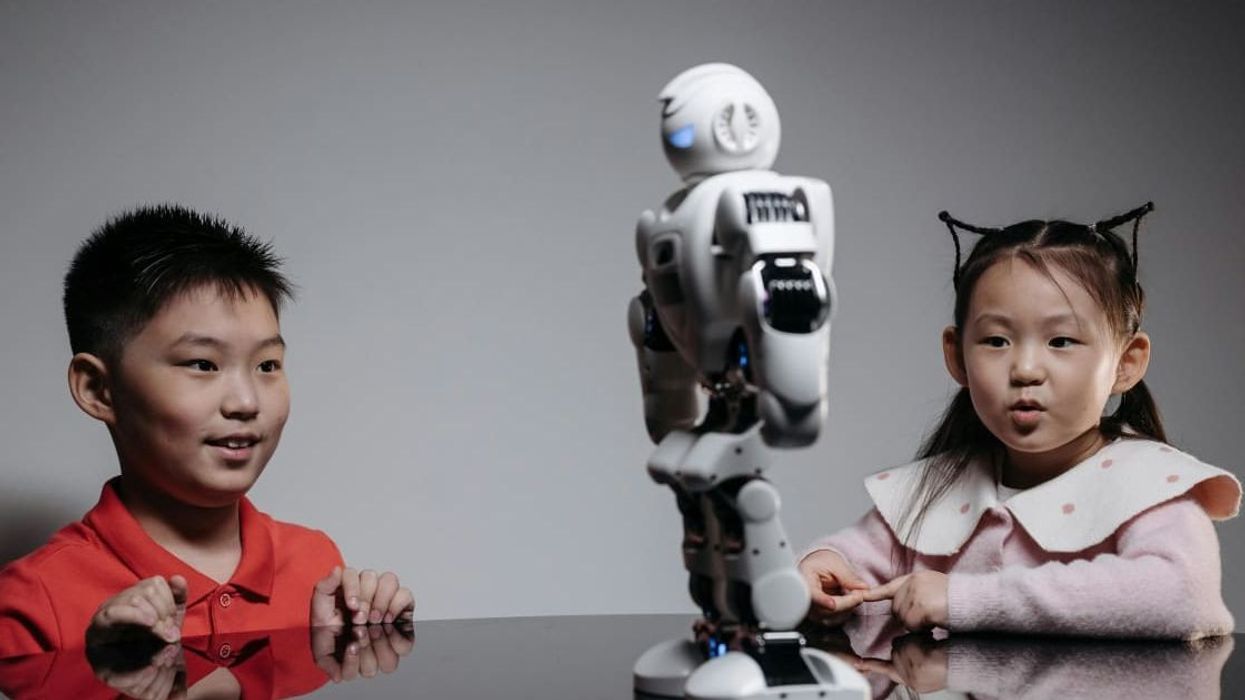In the 2019 Australian cyberpunk thriller "I Am Mother," a girl is raised by a robot named "Mother." She celebrates dinner parties and has conversations with the robot. Much like this character, many in Generation Alpha have grown up watching films about robots such as "The Terminator," "Blade Runner," "Transformers," and "Big Hero 6." This exposure makes them more interested in AI and robotics. Surprisingly, new research reveals that children not only like robots but are also more likely to trust them over humans. This study was published in the journal Computers in Human Behavior in April 2024.

Authored by Rebecca Stower, Arvid Kappas, and Kristyn Sommer, the study concluded that children aged 3 to 6 years prefer a reliable robot over a reliable human. It was carried out on a group of 111 participants, who were recruited through mailing lists, social media, and the website Children Helping Science, where a Qualtrics survey platform was used and parents guided their children through the process.
Children were shown a variety of videos to assess how they selected reliable and unreliable sources out of humans and robots. After several phases of the study, the researchers came to the conclusion that children were more likely to trust the agent that had been established as reliable in the history phase.
First, the children’s mind constructs the reliability of sources through their historical records, and then they trust what shows more reliability than the other. Interestingly, however, when both the robotic and human agents were proven to be reliable, the children demonstrated more affinity to choosing a robot over a human. Plus, they showed a preference for a robot when they had to confide a secret. Younger children especially, displayed more trustworthiness towards robots over human sources.
The study has provided some valuable insights into selective learning, that is, how children interact and learn. However, certain limitations are loopholing the research’s conclusion. Writing about the limitations of the research process, the authors wrote that the use of videos instead of live interactions may not fully capture nuances of child-robot interactions.

A similar research paper was published in March 2023 by Concordia University researchers in the Journal of Cognition and Development. Like this research, the 2023 research also suggested that preschoolers prefer learning from what they perceive as a competent robot over an incompetent human. Most likely, they prefer learning from a robot to a human.
But in the latest research, the researchers didn’t focus on the angle of why children feel like trusting robots more than humans. "What it is about the robot, exactly, which makes it preferable, remains an open question," noted the researchers.


















 Oral Wegovy pills were approved by the Food and Drug Administration in December 2025 and became available for purchase in the U.S. in January 2026.
Oral Wegovy pills were approved by the Food and Drug Administration in December 2025 and became available for purchase in the U.S. in January 2026. Despite the effectiveness of GLP-1 drugs for weight loss, there is still no replacement for healthy lifestyle patterns, including regular exercise.
Despite the effectiveness of GLP-1 drugs for weight loss, there is still no replacement for healthy lifestyle patterns, including regular exercise.



 Winter weather.
Winter weather. 

 In the past two years, two malaria vaccines have become available for babies starting at 5 months of age.
In the past two years, two malaria vaccines have become available for babies starting at 5 months of age. By exploiting vulnerabilities in the malaria parasite’s defense system, researchers hope to develop a treatment that blocks the parasite from entering cells.
By exploiting vulnerabilities in the malaria parasite’s defense system, researchers hope to develop a treatment that blocks the parasite from entering cells. Created with
Created with 
 Tasks that stretch your brain just beyond its comfort zone, such as knitting and crocheting, can improve cognitive abilities over your lifespan – and doing them in a group setting brings an additional bonus for overall health.
Tasks that stretch your brain just beyond its comfort zone, such as knitting and crocheting, can improve cognitive abilities over your lifespan – and doing them in a group setting brings an additional bonus for overall health. Overdoing any task, whether it be weight training or sitting at the computer for too long, can overtax the muscles as well as the brain.
Overdoing any task, whether it be weight training or sitting at the computer for too long, can overtax the muscles as well as the brain.